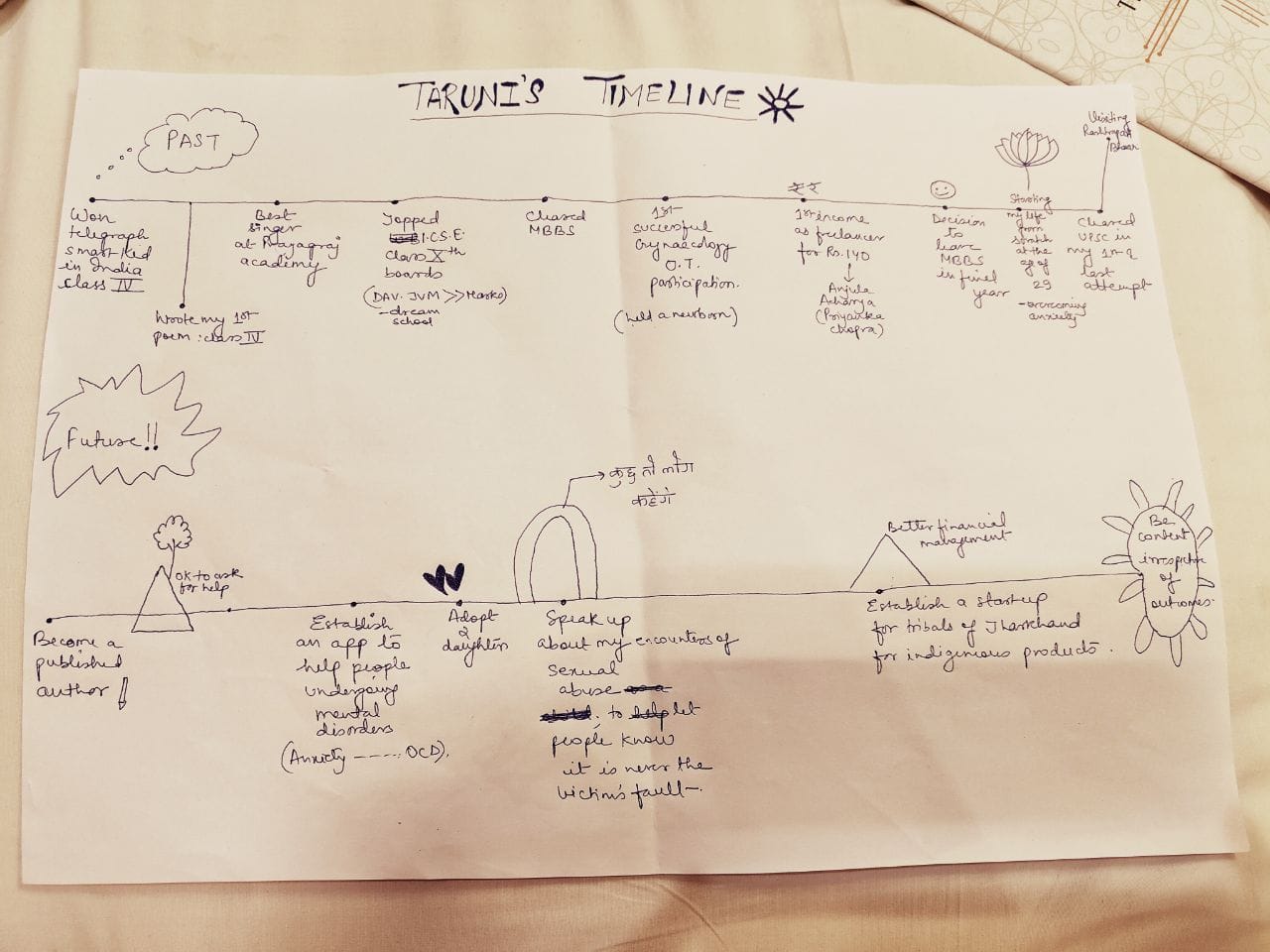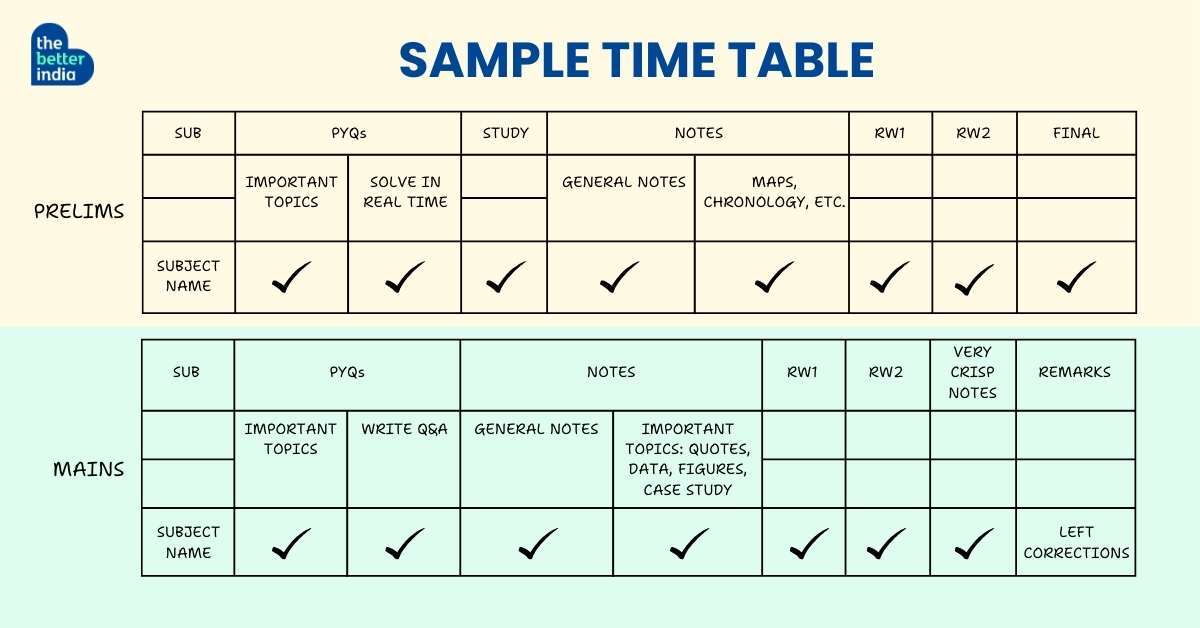7:10 pm
10 October, 2022
The results of the Union Public Service Commission (UPSC) Civil Service Exam (CSE) 2021 were announced, bringing squeals of happiness, tears, and bear hugs to the Pandey household in Jamtara, Jharkhand. Taruni had cleared the exam and was on her way to becoming a civil servant.
The celebration was even more remarkable because this was her first and last attempt; at 32, she prepared for the exam in just six months without any coaching! She accomplished this feat through a self-devised strategy that included meticulous planning, detailed note-taking, and a strict timetable.

She referred to YouTube videos and prepared notes based on them. With just four months of preparation for the prelims and two months for the mains, she cleared her UPSC CSE prelims and secured rank 14 in the Consolidated Reserve List in the CSE mains 2021. She is currently an officer in training with the Indian Communications Finance Services (IP&TAFS) in the Ministry of Communications.
Here’s how she planned her studies:
Tips for creating an effective study plan
Taruni Pandey (34), a proponent of self-study since childhood, always relied on putting things on paper. Her timetable was not based on strict timings but rather on a to-do list.
“I made weekly and monthly plans. The most important thing to remember is to be flexible as things change at any given point in time. I used to have a daily target of finishing, say, a chapter or a particular portion of a subject,” Taruni tells The Better India.
Her daily plan included a mix of subjects — one arts and one science — which helped break the monotony. She stuck a cardboard sheet with her plan, listing the subjects and organising them into six columns. “The first column was study, second notes, third was revision one, fourth was revision two, fifth was crisp notes, and sixth was final revision. For each subject, I would place a tick once I completed each step,” she adds.

The paucity of time meant that the aspirant had to make detailed notes to aid in quick revisions. For this, she made schematic or diagrammatic notes and acronyms for each subject. “My notes were very concise. My public administration notes only had four pages!” she shares with a chuckle.
At the end of every week, Taruni evaluated her progress using a carrot-and-stick approach. She would sit with a pen and tick off completed tasks from her plan. For sticking to the plan, she rewarded herself with treats like a movie on Netflix or an ice cream. As a punishment for not meeting her goals, she would forgo her beloved tea or coffee for the entire weekend or sometimes stay off social media.
She sounds a word of warning though: “Even if you are watching something online, stick to light-hearted comedies. Don’t go for a series or anything that is addictive or will distract you. No binge-watching. If I were an aspirant today, I would have probably chosen something like ‘Laapata Ladies’,” she adds. This motivational approach, she explains, rewires your brain and forces you to study.
While some prepare a timetable based on the number of hours of study, Taruni’s plan focussed on the portion to complete each day. Some days, it took less time, while other days, it took more. Even while sharing her strategy, she emphasises that everyone is different and must plan accordingly. “Do not copy anyone. Play on your strengths and weaknesses,” she adds.
Here are a few tips to keep your mind calm:
- Study smarter and study harder
Solve previous years’ question (PYQ) papers and understand the topics UPSC has loved all these years. “By PYQs, I don’t mean just the questions but also the options. Observe why a question has been asked, rather than just seeing what has been asked, to understand the psyche of the question paper setter,” she says.
- Don’t stop, but learn when to let go
Taruni quit her MBBS after two years due to a health problem. “Never giving up is a good attitude that we all have been taught since we were kids. I made a similar mistake by not leaving my MBBS course early because I always felt that if I quit, it would be my failure. I realised later that there were equally good things in life waiting for me,” says Taruni.
She urges aspirants to make their own decisions when it comes to quitting or giving the exam another shot. “Listen to your conscience without paying any heed to the outside world and their set formats of success and failure, and you will get the correct answer. Move ahead with minimal regrets because zero regrets don’t exist for mere humans like us,” she adds.
- Be mindful
Do something that connects you to something bigger than your goal. “Meditate, take a walk in nature, sit under the moon, listen to birds and so on. This reminds you that your goals are not the ultimate objective but merely a part of the bigger plan. It keeps you grounded. Any type of meditation or journaling keeps you sane during this hard phase,” she adds.
- Write it on paper!
Taruni has always jotted down her dreams, plans and more. She urges aspirants to write their feelings too.
“You get clarity when you see things organised visually in front of you. Look at your triggers with an open mind and eliminate the ones you can, mark the ones you need to work on. Let go of the ones that are beyond your control. Belief is a very important virtue that will help you the most during your preparation,” she adds.
If you wish to ask her any questions, you can drop Taruni a message on Instagram at @taruni.pandey or on X at @taruni_pandey.
Edited by Pranita Bhat, Images Courtesy Taruni Pandey
No comments:
Post a Comment